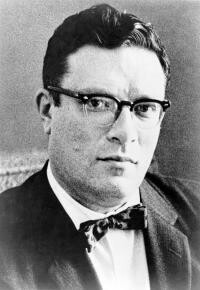Why “Science Fictional Thinking” Is Essential to Our Sustainability Journey
A story on NPR this week offered some interesting perspectives on one of the fundamental elements of the discipline of sustainability – our ability to envision the future.

A story on NPR this week offered some interesting perspectives on one of the fundamental elements of the discipline of sustainability – our ability to envision the future. The story revolves around a 1978 Isaac Asimov essay, in which he advocates for a "science fictional" way of thinking:
"No sensible decision can be made any longer without taking into account not only the world as it is, but the world as it will be and naturally this means that there must be an accurate perception of the world as it will be. This, in turn, means that our statesmen, our businessmen, our Everyman, must take on a science fictional way of thinking, whether he likes it or not or even whether he knows it or not. Only so can the deadly problems of today be solved."
— Isaac Asimov, "My Own View," The Encyclopedia of Science Fiction, Holdstock, ed., 1978
In some ways, it seems like the future is already here and that we’re living in a sci-fi story. People in their mid-20s have seen telephones evolve from clunky pieces of plastic on a desk into full-fledged pocket computers with video and photography capabilities more powerful than some dedicated cameras. The dictionaries, encyclopedias and other paper books they used as children have become, if not obsolete, far less important as information sources.
Over the same period, the planet has warmed by over a third of a degree. Wars and refugee camps have gone from being far-off concerns to something much closer to home for those of us in Europe and North America, with computers and communication networks serving as weapons as well as enablers.
The developing world has seen even greater changes, with low-tech subsistence farmers becoming sophisticated businesspeople, using those smartphones to learn when to fertilize and stay abreast of market prices. Backwater cities have become thriving metropolises full of glassy skyscrapers and too much traffic.
But none of this is the future. It’s just the present. And we haven’t seen anything yet. Which is why all of us—engineers, journalists, politicians, farmers, and everyone in between—should heed Asimov’s advice if we want to make the best decisions. Because vision and envisioning are so central to sustainability, it’s not a stretch to say that science fictional thinking is essential to our sustainability journey.
As Pascal Finette of Singularity University teaches us, our ability to imagine the future is what empowers successful innovation, instead of the “too little, too late” product. The Natural Step process asks us to envision the future we want as the first action towards making it possible to get there. And Anticipatory LCA and Sustainable Return on Investment (S-ROI) use our ability to envision futures with both positive and negative results as we assess new projects and investments.
Of course, even the best envisioning can’t be perfectly precise. Indeed, one of the most powerful aspects of Anticipatory LCA and S-ROI is that they are designed from the outset to incorporate uncertainty and help us define plausible ranges of future results (and it’s worth noting that Asimov says our perceptions of the future should be “accurate,” not “precise”). Cultivating this way of thinking is difficult, because it challenges our experiences and expectations. Digging into Sci-Fi movies or short stories may help some people. Developing the ability to daydream may help others.
One useful technique, which EarthShift Global uses in our courses and internal meetings, is the Postcard Stories exercise from The Systems Thinking Playbook by Sweeney and Meadows. It uses visual images in the context of storytelling to get people into a “what if” kind of mood, and start thinking about previously unseen connections and effects.
Whatever works for you, it’s an increasingly important skill to learn, and we’d love to hear from you about methods you’ve found helpful. Has reading science fiction, daydreaming, or some other technique made you a better decision maker?